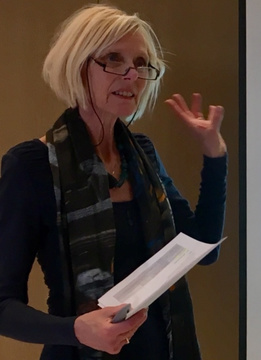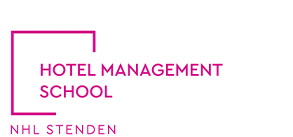
-
 publication: 6 March 2020
publication: 6 March 2020
 Anthropological Participant Observation
Anthropological Participant Observation
in
Undergraduate Hospitality Traineeship
A paper presentation at the 4th European Congress Qualitative Inquiry (ECQI) on Qualitative Inquiry towards Sustainability (4 till 7 February 2020, University of Malta)
Dr. Marte Rinck de Boer (marte.rinck.de.boer@nhlsstenden.com)

The annual congress ECQI is organized by the KU Leuven (Belgium); this year the University of Malta hosted qualitative researchers from all over the world. Further information on the congress can be found via the following link: https://kuleuvencongres.be/ecqi2020
Next to attending two interesting pre-conference workshops on Phenomenology (dr. Jo Ferrie, University of Glasgow) and Doing Practitioner Research (dr. Gail Simon, University of Bedfordshire), I participated with a paper rooted in a longitudinal research project on teaching research with Anthropological Participant Observation (APO). For the project, my colleague Yeb Seffinga and I integrated APO with the students’ 3rd year management traineeship in our on-campus commercial hotel and other locations with the regular 3rd year teaching research course. It was our aim to understand the possibility of APO for the development of students’ practitioner inquiry capability [1] while contributing to the development of the company.
The project was inspired by the work of social anthropologist Tim Ingold [2] [3], especially his book Anthropology and /as Education (2018). He argues that anthropology and education follow the same propositions while having the same purpose namely enabling young people to study and to lead a life with others. Moreover, he states that a close connection between anthropology and education can transform the world. In this sense, the project also is a critical, albeit constructive response to (post)positivist hospitality management research guided by a ‘tyranny of relevance’ for business improvement only [4][5].
The combined practice-anthropological field work created an educational condition that challenged the students to become attentive and consciously responsive to what happened with and around them, to draw the curtain and to look behind the obvious and self-evident in daily hospitality practice. We concluded that students entered a space of liminality as they were unfamiliar with doing QUAL research, in particular, with this specific approach that blurs the boundaries between practitioner and researcher. We noticed that students needed to unlearn (detox) to create a different mindset towards doing research. In many small group conversations, we supported the students and at some point, we noticed signs of qualitative, critical, and reflexive thinking. And, what was even more important: they enjoyed doing anthropological participant observation. One of our students wrote in her reflection section of the UR report:
During practice, I experienced it was quite hard to combine doing research with a role as being a manager. This was mainly because I was quite involved in the practical activities and my main priority was to maintain a clear overview of the department. … Overall, during the five weeks in practice, I learnt how to combine my role both as a researcher and manager and how to make useful field notes. … During the research, I felt it extremely interesting to get insight into the incidents of the department and to really take part of the situation itself as researcher. Due to the research, I put my focus on CSR implementations, mainly health and safety, in the department and I found out that this had influence on the whole team performance and ambience. It was exciting to see how my attitude and behaviour as a manager could have an impact on the whole team. This observation made me feel more responsible and more aware of my important position [Mary]
The stories the students wrote based on their observations included recommendations for use of English language within the international context of the on campus hotel; gender and cultural diversity; motivation of Student employees; and communication issues.
We have learned that Anthropological Participant Observation creates excellent opportunities for case analysis to develop in-depth knowledge and understanding of what is going on in a company / department and to respond to it. We think that engaging in APO is a requirement to develop the inquiry capability that our students will need to contribute to the future of the Hospitality Industry.
[1] Cochran-Smith, Marylin, Barnatt, Joan, Friedman, Audrey & Pine, Gerald. “Inquiry on Inquiry: Practitioner Research and Student Learning”, Action in Teacher Education, 31:2, 2009,17-32. DOI: 10.1080/01626620.2009.10463515
[2] Ingold, Tim. Anthropology and/as Education. Abbingdon, Oxon: Routledge, 2018.
[3] Ingold, Tim. “Anthropology versus Ethnography”. HAU: Journal of Ethnographic Theory, 7:1 (2017), 21-26. DOI:10.14318/hau7.1.005
[4] Lashley, Conrad. “What to do about how to do: Reflections on the Future Direction of Hospitality Education and Research”, Research in Hospitality Management, 8:2, (2018), 79-84. DOI: 10.1080/22243534.2018.1553368
[5] Lugosi, Peter, Lynch, Paul, & Morrison, Alison. “Critical Hospitality Management Research”. The Service Industries Journal, 29:10, (2009), 1465-1478. DOI: 10.1080/02642060903038879




 Back to overview
Back to overview

